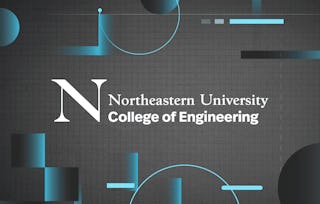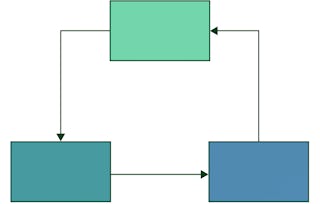This course takes Java beginners to the next level by covering object-oriented analysis and design. You will discover how to create modular, flexible, and reusable software, by applying object-oriented design principles and guidelines. And, you will be able to communicate these designs in a visual notation known as Unified Modelling Language (UML).

Object-Oriented Design

Object-Oriented Design
This course is part of Software Design and Architecture Specialization

Instructor: Kenny Wong
152,153 already enrolled
Included with
2,403 reviews
Skills you'll gain
Details to know

Add to your LinkedIn profile
See how employees at top companies are mastering in-demand skills

Build your subject-matter expertise
- Learn new concepts from industry experts
- Gain a foundational understanding of a subject or tool
- Develop job-relevant skills with hands-on projects
- Earn a shareable career certificate

There are 4 modules in this course
Good software design begins before coding. After establishing the initial software requirements, design practices involve two main activities: conceptual design and technical design. In this module, you will realize the importance of design and object-oriented thinking, and learn how to design software using techniques like CRC cards.
What's included
6 videos9 readings4 assignments
Best software design practices have evolved alongside programming languages. Today, all developers should be familiar with abstraction, encapsulation, decomposition, and generalization, which are fundamental principles in object-oriented design. You will learn all of these principles and how they are expressed in Java and communicated visually in Unified Modelling Language.
What's included
11 videos4 readings1 assignment2 peer reviews
Additional design principles will help you to create code that is flexible, reusable, and maintainable. In this module you will learn about coupling and cohesion, separation of concerns, information hiding, and conceptual integrity. You will also learn to avoid common pitfalls with inheritance, and ways to express software behavior in UML.
What's included
8 videos6 readings1 assignment4 peer reviews
In the previous modules you were introduced to object-oriented analysis and design, object-oriented modeling, and design principles. To cement your understanding of this material, you created a UML class diagram from an example Android code base, and used your understanding of the code base to make sequence and state diagrams to model its behavior. Now, in the final module of the course, given a description of new functionality and an updated UML class diagram, you will implement the updated design into the Android code base. After completing this development task, you will be ready to complete the final exam.
What's included
4 readings1 assignment1 peer review
Earn a career certificate
Add this credential to your LinkedIn profile, resume, or CV. Share it on social media and in your performance review.
Instructor

Offered by
Explore more from Software Development

Birla Institute of Technology & Science, Pilani
 Status: Preview
Status: PreviewNortheastern University
 Status: Free Trial
Status: Free TrialUniversity of Alberta
 Status: Free Trial
Status: Free TrialUniversity of Colorado Boulder
Why people choose Coursera for their career

Felipe M.

Jennifer J.

Larry W.

Chaitanya A.
Learner reviews
- 5 stars
75.95%
- 4 stars
18.42%
- 3 stars
3.53%
- 2 stars
0.70%
- 1 star
1.37%
Showing 3 of 2403
Reviewed on Apr 20, 2022
course introduce prefect content for beignner with good tasks that give you feedback about your progress at last thanks for all who helped me to finish this course
Reviewed on Aug 5, 2020
Great course to learn the concepts of Software Designing and how it is used in real business scenarios. This course is indeed very helpful for aspiring product developers who aim to be an architect.
Reviewed on Sep 25, 2022
I learnt OOD concepts like never before and feel empowered to work on software in a more effective way than before.Thank you, Coursera and University of Alberta! :)

Open new doors with Coursera Plus
Unlimited access to 10,000+ world-class courses, hands-on projects, and job-ready certificate programs - all included in your subscription
Advance your career with an online degree
Earn a degree from world-class universities - 100% online
Join over 3,400 global companies that choose Coursera for Business
Upskill your employees to excel in the digital economy
Frequently asked questions
To access the course materials, assignments and to earn a Certificate, you will need to purchase the Certificate experience when you enroll in a course. You can try a Free Trial instead, or apply for Financial Aid. The course may offer 'Full Course, No Certificate' instead. This option lets you see all course materials, submit required assessments, and get a final grade. This also means that you will not be able to purchase a Certificate experience.
When you enroll in the course, you get access to all of the courses in the Specialization, and you earn a certificate when you complete the work. Your electronic Certificate will be added to your Accomplishments page - from there, you can print your Certificate or add it to your LinkedIn profile.
Yes. In select learning programs, you can apply for financial aid or a scholarship if you can’t afford the enrollment fee. If fin aid or scholarship is available for your learning program selection, you’ll find a link to apply on the description page.
More questions
Financial aid available,
¹ Some assignments in this course are AI-graded. For these assignments, your data will be used in accordance with Coursera's Privacy Notice.

